Nickel is an incredibly common alloying element since it is both highly versatile and able to alloy with almost any metal. As a whole, nickel-based alloys offer heat-resistance as well as high corrosion-resistance against a broad spectrum of corrosive media such as chemical, alkalis, petroleum and seawater. Read More…
Since 1986 Magellan has been serving the global aerospace, oil & gas, power generation, petrochemical, bio-medical, pharmaceutical and other high tech manufacturing industries. Suppliers of nickel alloys, titanium, stainless steel and duplex alloys throughout the United States and in over 45 countries.
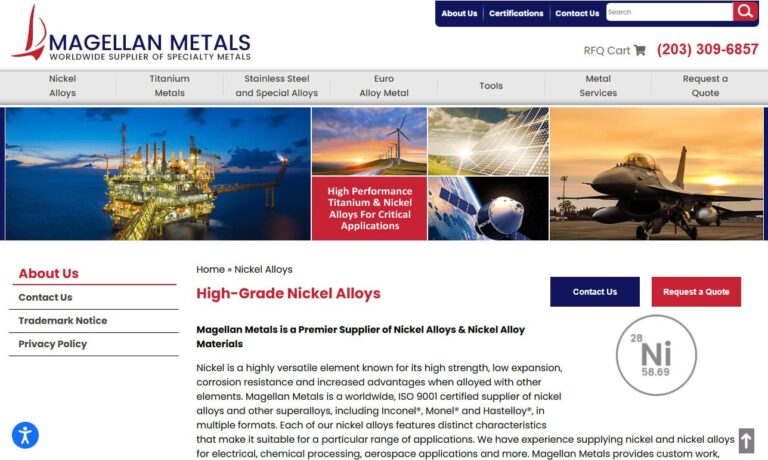
At Metals Unlimited Aerospace, we take pride in being a trusted source for premium nickel materials that meet the exacting standards of the aerospace industry. Our expertise lies in providing high-performance nickel alloys known for their strength, corrosion resistance, and ability to withstand extreme environments.
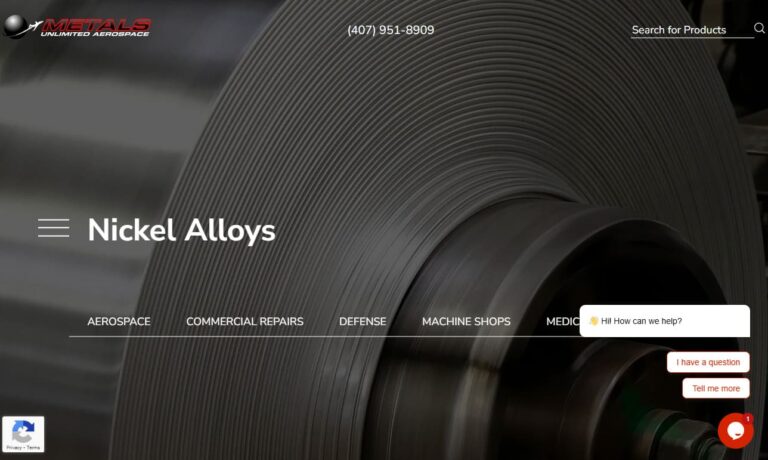
At Service Steel Aerospace, we specialize in providing premium-quality nickel products tailored to the needs of the aerospace industry. Our extensive range of nickel alloys and materials is designed to meet the rigorous demands of aerospace applications, offering superior strength, durability, and corrosion resistance.
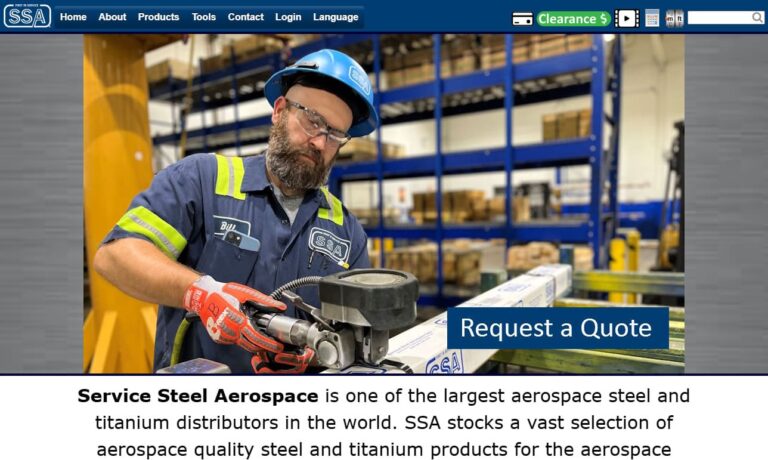
Sierra Alloys is a manufacturing service center specializing in titanium, PH grades of stainless, VAR aircraft alloy steels and nickel based alloys. Sierra's in-house forging and hot rolling equipment serves to meet and exceed the most stringent customer requirements. We have over 30 years experience.
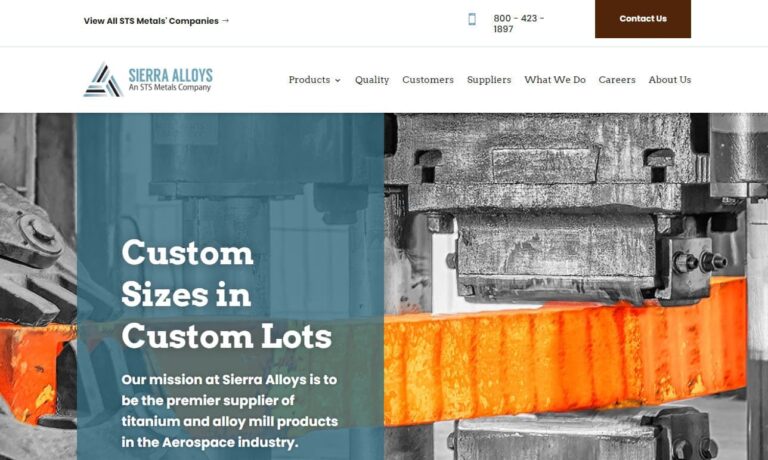
Need nickel, nickel alloys (200, 201, 205, 211, 233), nickel bar, sheet, strip, wire or welding wire? Call us. Our other nickel alloys include nickel-copper, nickel-chromium, copper-nickel, iron-nickel, copper nickel manganese and low OHM resistance alloys. Small or large quantities honored. Not only do we specialize in nickel and nickel based alloys we also specialize in customer satisfaction....
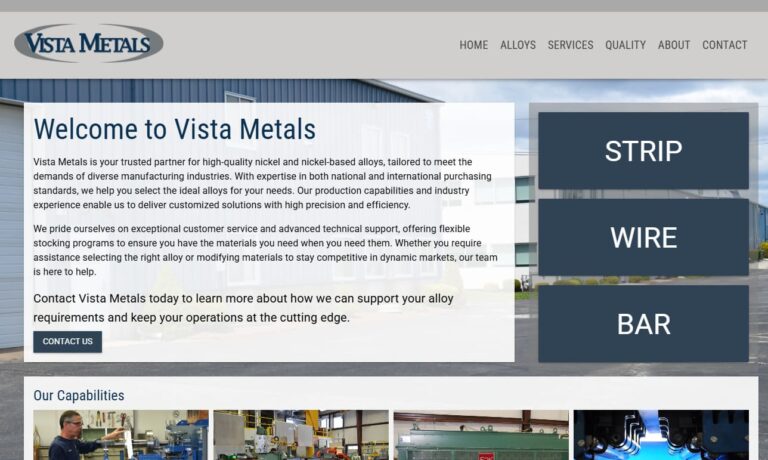
More Nickel Alloy Suppliers
Some common elements that nickel is alloyed with to form nickel alloys included iron, copper, chromium, manganese, carbon and silicon. As a result of the wide range of elements that nickel is able to alloy to, there is a correspondingly vast number of industries that nickel alloys are utilized in including: medical, used in eye-glass frames, hypodermic tubing, surgical sutures and more; power generation, for use in steam turbine power plants, nuclear power plants and varied other applications; military, used in weapons, vehicles and identification tags; industrial manufacturing, for use in corrosive material handling and various machinery such as direct current (dc) motors or generators; marine, for shipping vessels, off-shore oil rigs and small parts such as springs or fasteners; and aerospace, for use in gas turbines, jet engines and components such as piping and shims.
There are a vast number of nickel alloys, which are often categorized in terms of their second most prominent element, the characteristics they display, or the uses they are being put to. For instance, a nickel alloy with the composition of 55% nickel and 45% titanium is referred to as Nitinol, also called a nickel-titanium alloy, or a shape memory alloy.
Another example is a nickel alloy with a composition of 80% nickel and 20% chromium, called Nichrome, also called a nickel-chromium alloy, or an electrical resistance alloy. Some other popular types of nickel alloys include Hastelloy, Cupronickel, Monel, Inconel, German silver and Alumel.
The many nickel alloys are typically broken down into four main types in regards to their characteristics: low-expansion alloys, which include nickel alloys that are specifically engineered to have low thermal expansion; electrical resistance alloys, which are nickel alloys with a high nickel content; soft magnetic alloys, which are nickel alloys with high magnetic permeability and low saturation induction; and shape memory alloys, which are nickel alloys that are capable of returning to their prior shape upon undergoing the appropriate heating schedule.
Electrical resistance alloys include two sub-categories: resistance alloys and heating alloys, which contain silicone and possibly niobium in addition to nickel and chromium.

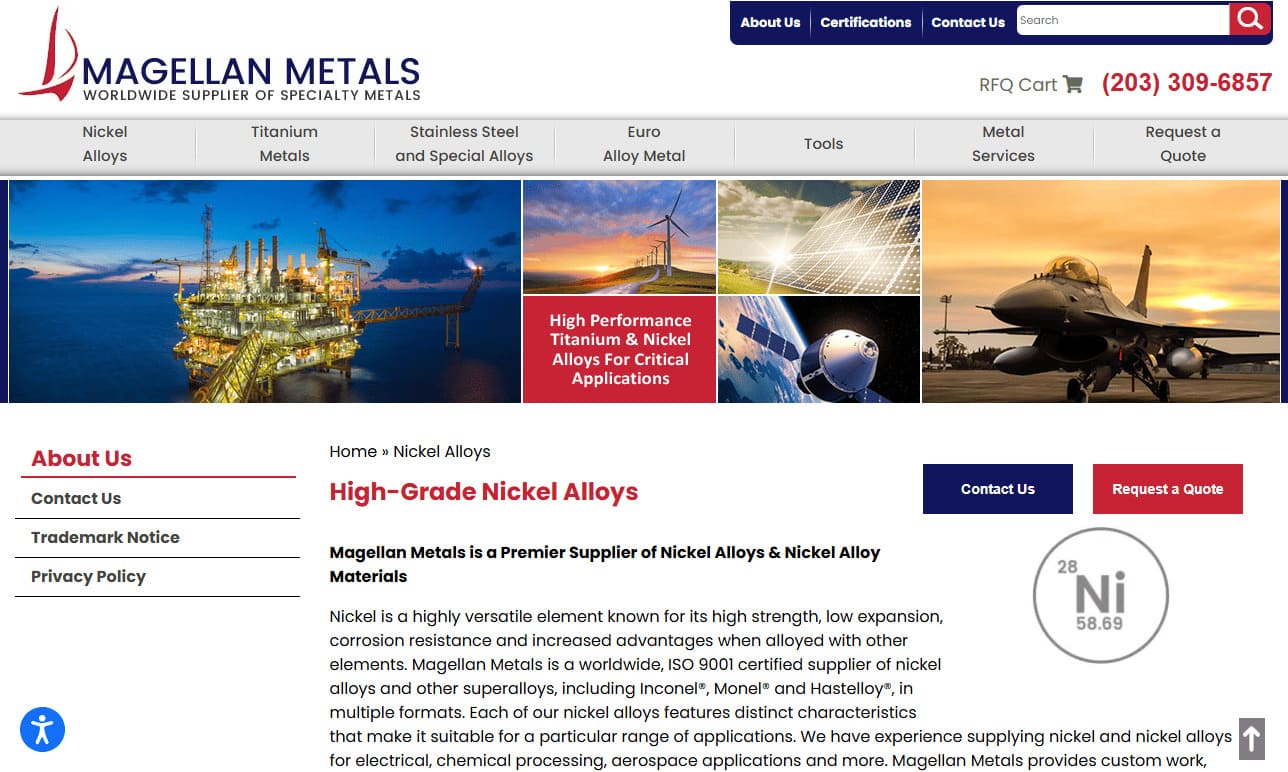
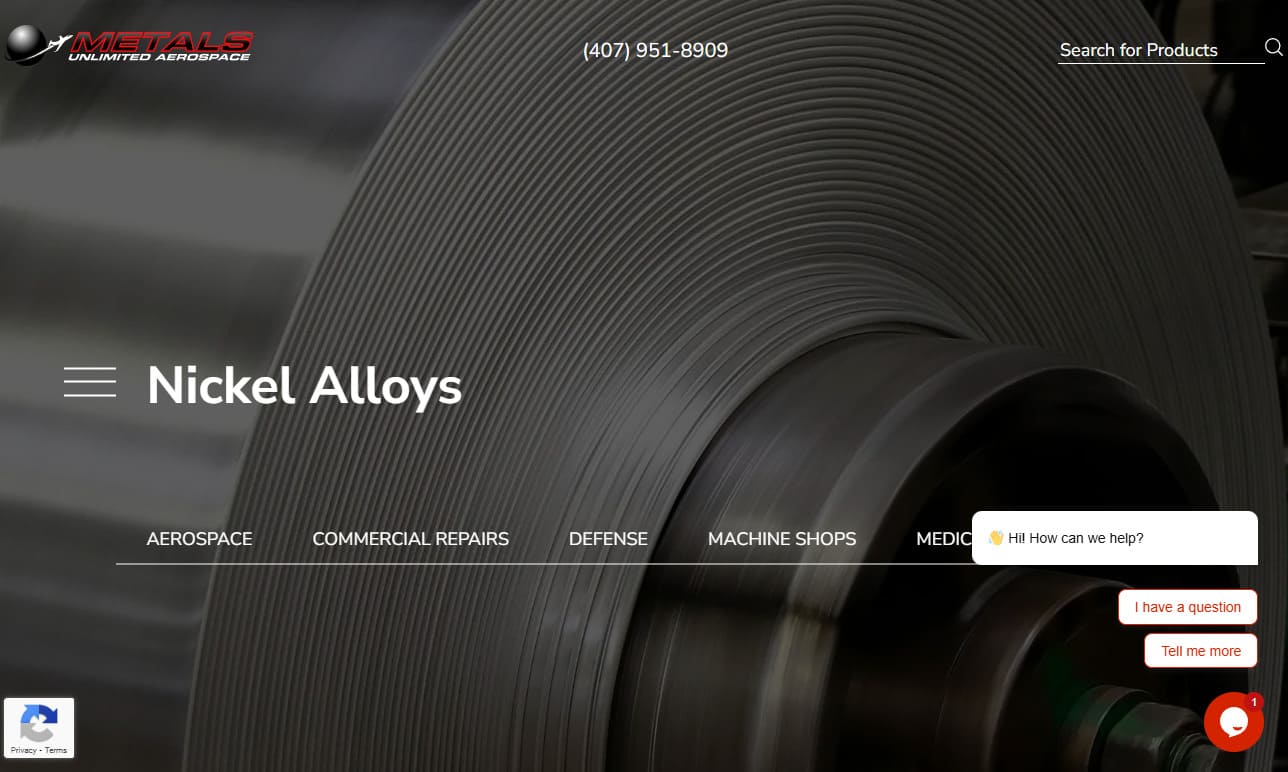
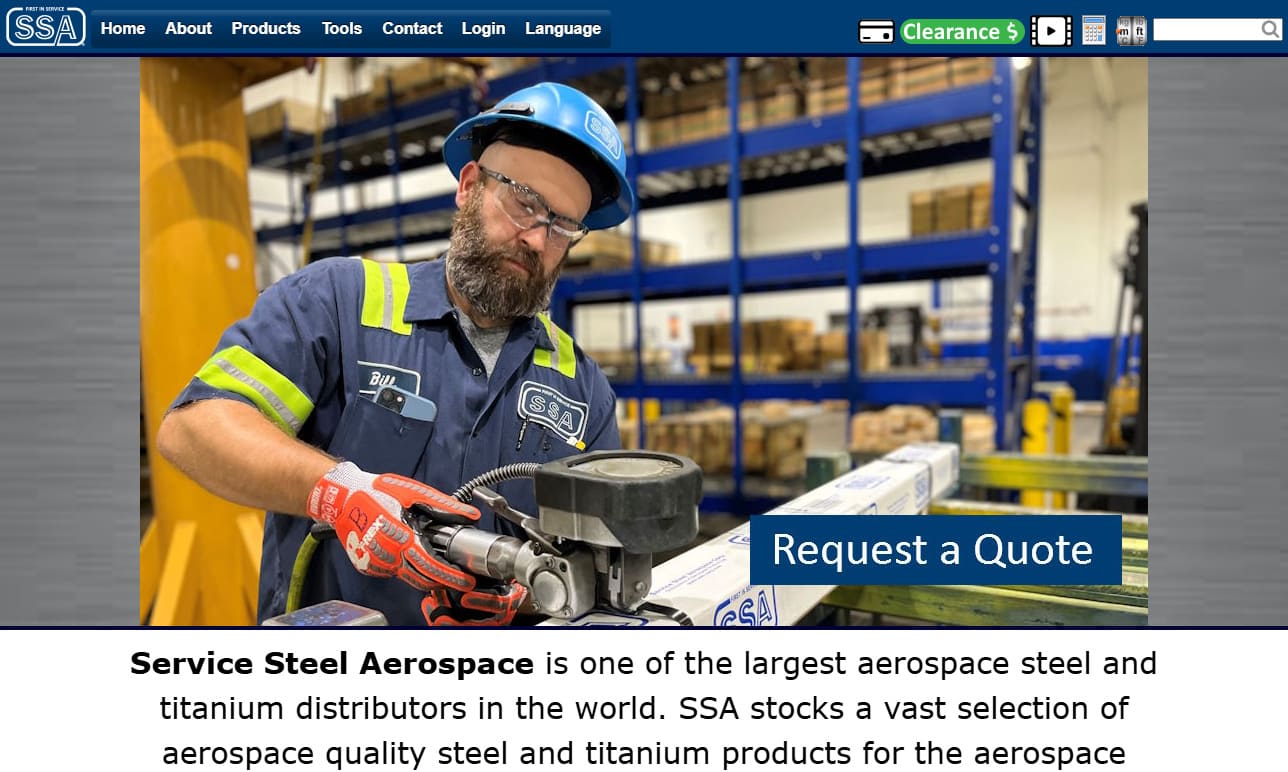

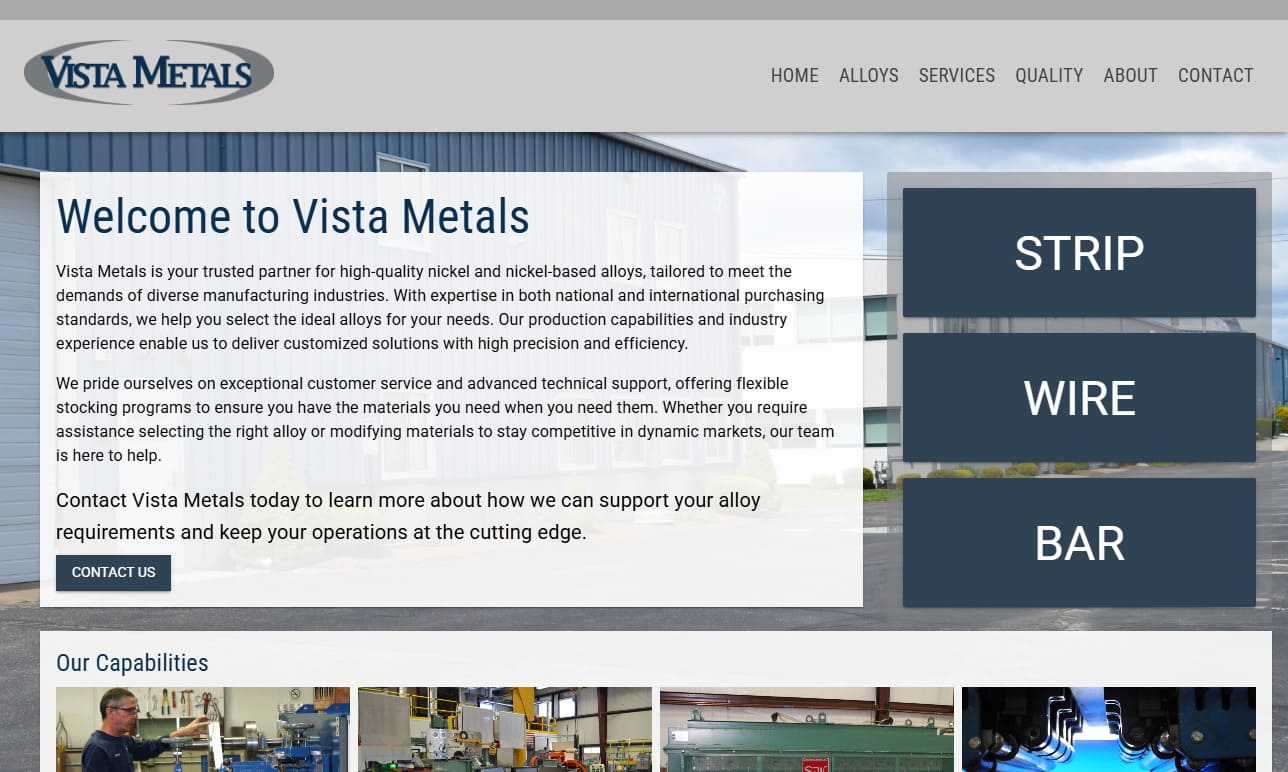
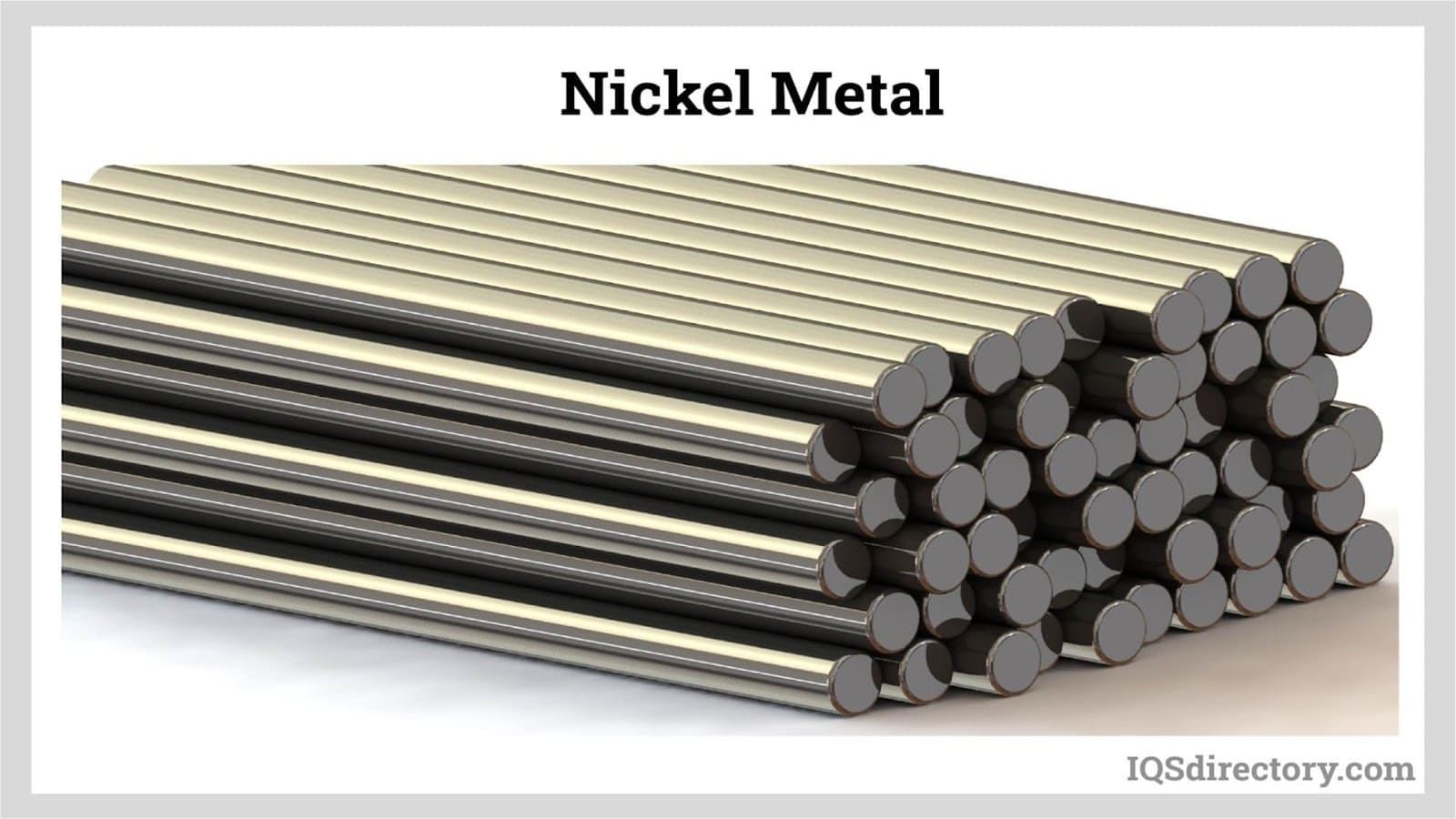
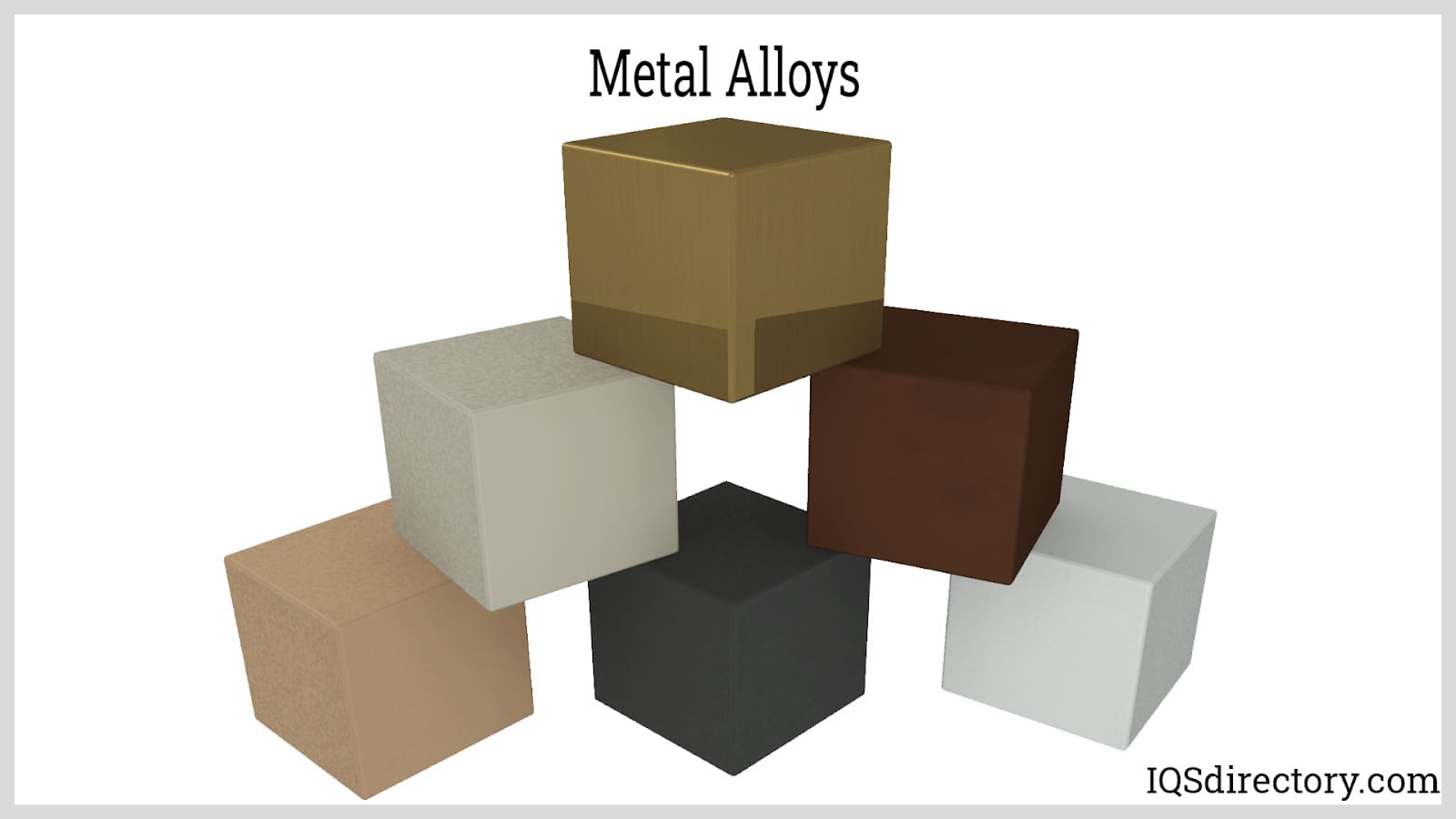
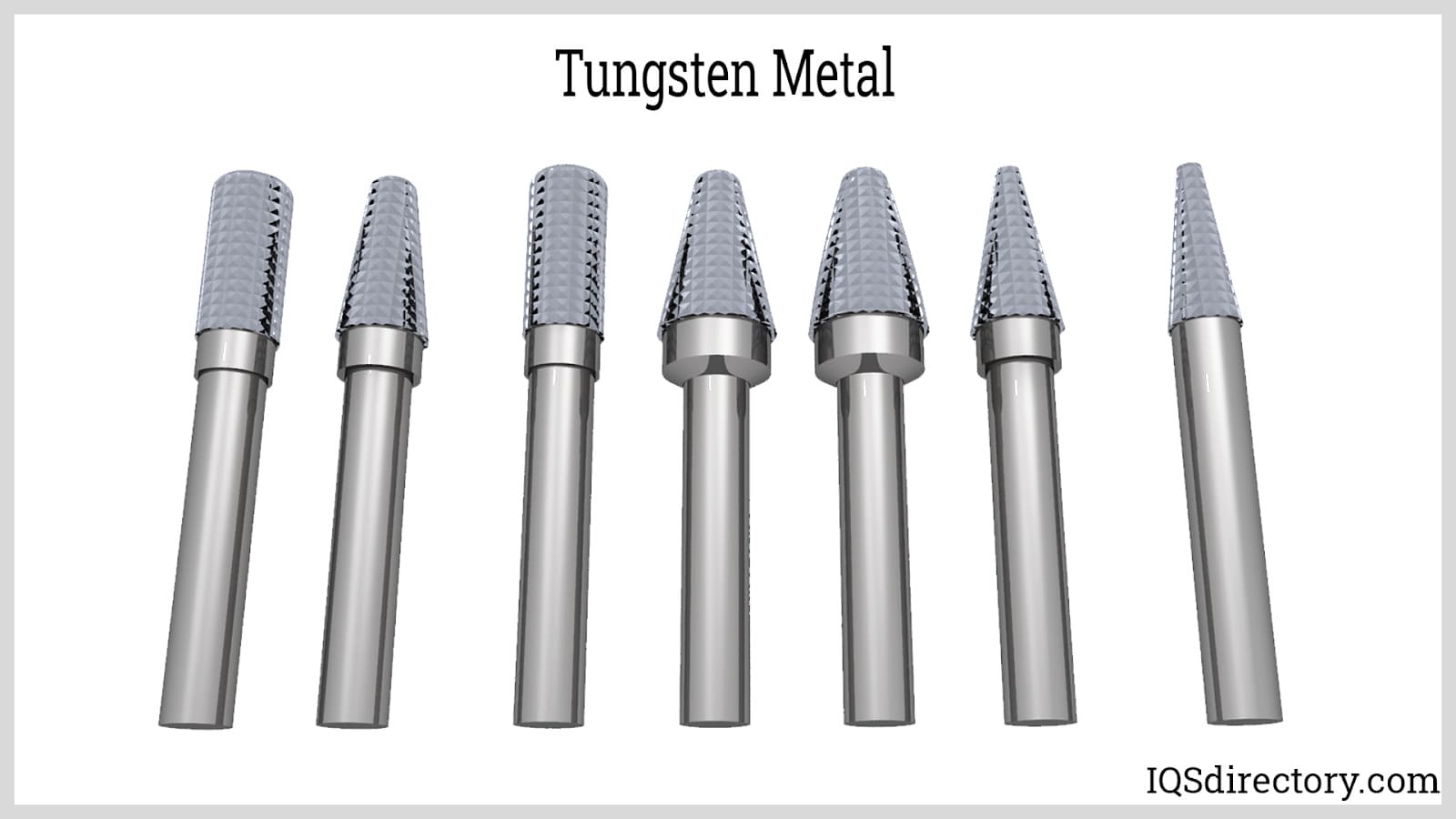



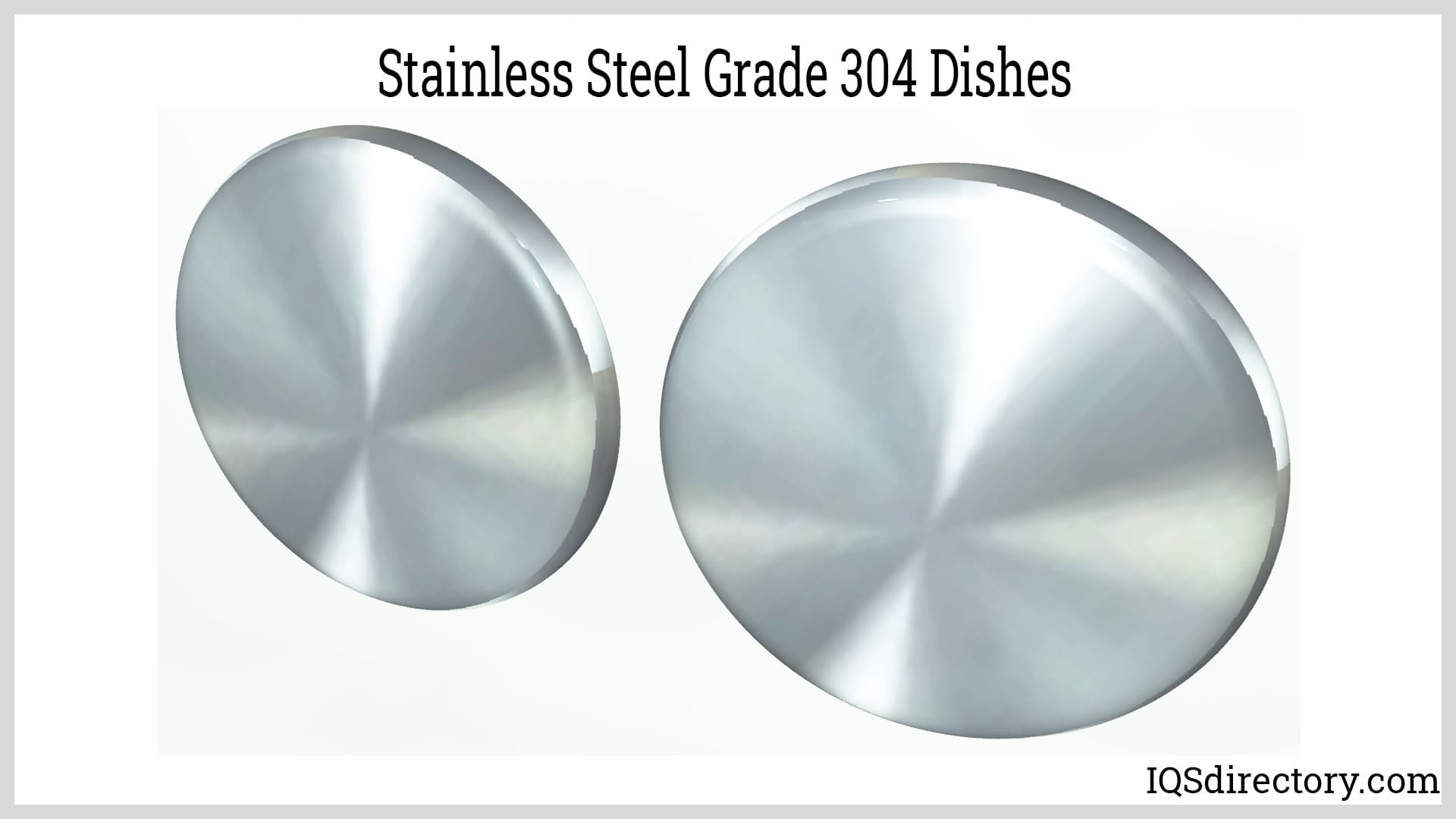
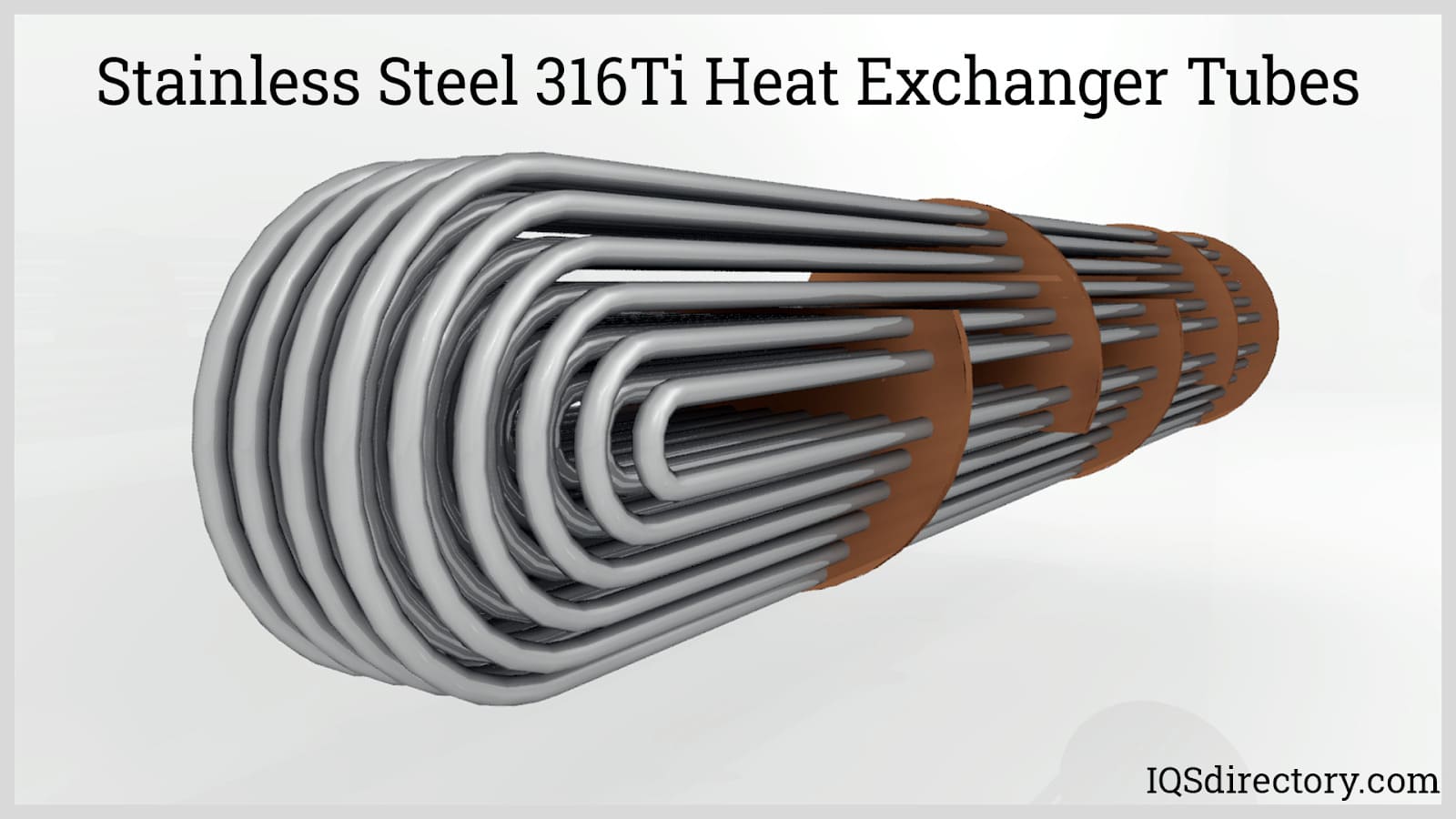

 Alloy Suppliers
Alloy Suppliers Aluminum
Aluminum Aluminum Extrusions
Aluminum Extrusions Copper-Brass-Bronze
Copper-Brass-Bronze Magnets
Magnets Nickel
Nickel Stainless Steel
Stainless Steel Stainless Steel Tubing
Stainless Steel Tubing Steel Service Centers
Steel Service Centers Titanium
Titanium Tungsten
Tungsten Wire Rope
Wire Rope Castings & Forgings
Castings & Forgings Bulk Material Handling
Bulk Material Handling Electrical & Electronic Components
Electrical & Electronic Components Flow Instrumentation
Flow Instrumentation Hardware
Hardware Material Handling Equipment
Material Handling Equipment Metal Cutting Services
Metal Cutting Services Metal Forming Services
Metal Forming Services Metal Suppliers
Metal Suppliers Motion Control Products
Motion Control Products Plant & Facility Equipment
Plant & Facility Equipment Plant & Facility Supplies
Plant & Facility Supplies Plastic Molding Processes
Plastic Molding Processes Pumps & Valves
Pumps & Valves Recycling Equipment
Recycling Equipment Rubber Products & Services
Rubber Products & Services